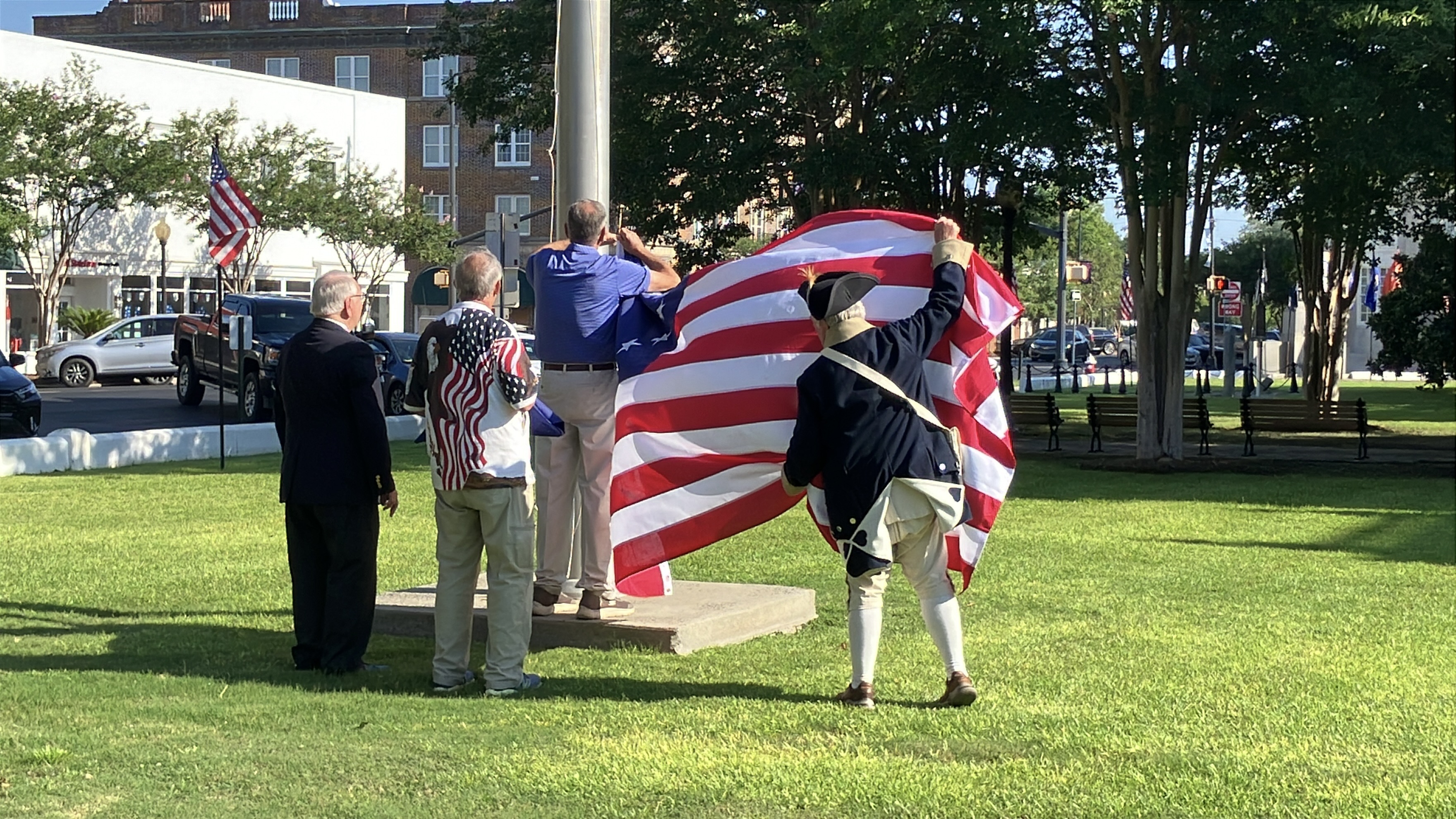ABAC holds Free Speech and Democracy Conference
Published 6:00 pm Wednesday, March 29, 2017

- Dr. Jay Baldwin
TIFTON — In a world where people are quick to take offense and tune out of a conversation, one local professor believes something should be done and that it can start at the college level.
Dr. Jay Baldwin, assistant professor of communication at Abraham Baldwin Agricultural College, wrote a grant to host a Free Speech and Democracy Conference at the college. The event was held in partnership with the Institute for Humane Studies (IHS) while the John Templeton Foundation provided funding for the event.
Prompted by a rise of intolerance on college campuses across the country, Baldwin felt students at ABAC and other institutions could use a dose of “classical liberalism.” He explained this as “ideas that we should all accept as the ground rules for civil discourse, regardless of political affiliation.”
Courtney Derr, senior director of student programs with IHS, opened the conference by stating, “Don’t be afraid to ask challenging questions, but be civil.”
This was the theme echoing across the venue. Civility is key to communication and progress, but it is often forgotten during a heated debate, on social media platforms and in town hall meetings alike.
“Can We Take a Joke?,” a documentary loosely based on the stories of Lenny Bruce and other comedians, was shown Friday afternoon as a way of introducing the importance of free speech and the ability to be offended without redress.
Following the film, three guest lecturers were introduced.
The panel consisted of Dr. Andrew Jason Cohen, associate professor of philosophy at Georgia State University, Dr. William E. Lee, professor of communication at University of Georgia, and Dr. Michael John Perry, professor of law at Emory University.
Students were encouraged to ask the speakers questions about free speech and what it means to the American democratic system.
Addressing a situation in the film where comedians were heckled for their jokes, Cohen stated, “Free speech isn’t about getting rid of politeness.” This common thread was iterated throughout to remind attendees that they should speak their minds, but also be willing to listen to the other side of an argument.
Cohen continued this discussion in his lecture held later in the evening.
“We tolerate things we in some way oppose,” he said.
His talk dealt with the essence of toleration, of being able to endure something you may not agree with or even like, and accepting being offended as part of life.
“Being offended is not a reason to limit another person’s speech,” said Cohen.
“Accept that we are going to be offended. This develops our moral muscle and forces us to think things through.”
The Saturday portion of the conference continued with Lee
“The power to censor resides in the people, not the government,” said Lee.
According to Lee, free speech is critical to the American system of government because the people do not trust the government to dictate what is acceptable speech and what is not.
This is not without a degree of consequence.
“One of the really distinctive things about America is our commitment to free speech and that includes speech that’s ugly, speech that’s offensive, speech that may be harmful,” he said.
Perry, originally of Kentucky and now living in Atlanta, was proud to have the opportunity to speak at ABAC, saying that it broadened his own horizons by coming down to a school that is unlike most of the schools he speaks at.
As a professor of law, he reminded students the matters being discussed could not be resolved easily or with bandwagon appeal.
“These issues are complicated and they are not the kind of issues as to which it makes sense to announce your position in a bumper sticker format,” he said.
Nearly 150 students and many faculty members attended some portion of the event with many attending all sessions.
The conference closed with a question and answer review from the professors.
As a rural studies writing and communication student, Remington Miller felt the topics discussed were pertinent to her career choice. “Learning about free speech ties into everything I do now and want to do in the future,” she said.
Along with other students and faculty, Walter Murphy, a senior in the writing and communication program, voiced his opinions and concerns during the Q&A sessions.
“While I didn’t agree with everyone, it was great to have a forum that encouraged us to entertain conflicting ideas,” said Murphy. “Healthy debate is the foundation of democracy, I believe.”
Baldwin hopes everyone left with a sense of civil duty to think instead of jump to conclusions.
“I hope the students leave believing in their thinking ability, to experience deep engagement with ideas and gain confidence in their ability to do so. I think we did that,” Baldwin said.
Baldwin believes civil dialogue and toleration is no easy feat, but it can be accomplished through educational endeavors like the conference.
“Opinions are easy. Knowledge is hard,” Baldwin said. “To know something, really know it, takes work.”





